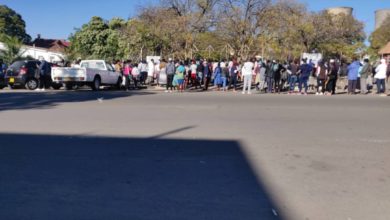We have developed strategies to win rural votes: CCC

The Citizens Coalition for Change (CCC) says it has come up to win over rural voters as shown by the performance during the by-elections that were held almost all throughout last year.
According to the opposition party, it discovered the value of having field officers on the ground – engaging voters, polling agents observing the elections and making sure there is ample funding for the campaign.
As Zanu PF performs well in rural areas, observers have continuously urged opposition political parties to develop plans for influencing rural voters.
Analysts note that despite subsidies during election season, a tactic that the regime has mastered, there is little evidence that government programmes benefit rural communities more.
However, Zanu PF, which has a history of underwhelming performance in urban areas where the opposition has held sway since 2000, is beginning to make gains.
CCC Deputy National Spokesperson Gift Ostallos Siziba remarked in an interview with CITE’s Breakfast Club that if the party dedicates time and money in its rural campaigns, they may be able to win the rural vote.
“I think what happened here in Matabeleland was a sign for us that if we put certain elements into the campaign we are able (to win),” he said.
This was seen in the outcome of the Bulilima by-election results, in which CCC wrestled two seats from Zanu PF, where former Deputy Prime Minister, Dr Thokozani Khupe was praised for her grassroots campaigning acumen.
According to Siziba, one of the lessons CCC learned from the by-elections was the importance of being able to deploy polling agents and field officers in constituencies.
“We must have agents everywhere. Number two, we must make sure we do whatever is necessary to reduce the politics of patronage as a party. Once those factors are sorted, the issue of harvest of fear used in the countryside, patronage, manipulation can be done away with.” Siziba said.
The CCC deputy spokesperson added the party plans to deploy young people to engage and stimulate rural voters.
“So that we protect our people in rural communities because we see there is so much appetite in those that execute and implement violence as a weapon of political organisation against the constitutionally provided art of persuasion through the freedoms and articulations of our issues,” said Siziba, who lamented that the current political violence has replaced debate and exchange of ideas.
“Political violence is a current problem and is one that answers as to why there was a lot of intimidation and challenges in the countryside. But we think we have done well under the conditions and that we must be able to do better.”
CCC’s fourth lesson was to invest in resources, according to Siziba.
“It has been proven where we won that we must have sufficient resources to support our candidate and our people, the community mobilisers and organisers must have sufficient resources in financial terms able to campaign and win,” he said.
The CCC deputy spokesperson emphasized that the above-mentioned factors were lessons learned from by-elections, which are naturally and historically complicated polls since fewer people participate.
“People don’t participate and there has been a number of by-elections that have been held where people have been very apathetic,” he said
“We had by-elections under a very difficult environment. Less people participate, meaning people don’t want to take the risks. In Binga, you saw how violent it was. We went to Binga where I had accompanied the president (CCC party leader- Nelson Chamisa) and we were denied (entry). We had problems there but under difficult conditions, still people went out to vote and that is the reason why we gained some of the seats.”
Siziba bemoaned how the State concentrates its security force in places where by-elections are held in order to scare and coerce the people in those areas.
“We saw a minister coming from Mashonaland Central to come and lead violence against our members in Matabeleland. This shows there was a concentration of the entire regime and securocrat apparatus to come and attack our people. The same happened in Gokwe but despite all this you can see that we had a good show of political force in Gokwe,” he alleged.
“Our vote share increased, we also had a good vote share in Manicaland. We might have not gained certain seats but I think comparatively in terms of numbers, we had a good share of voters in rural areas we might not have won but had a good show.”






